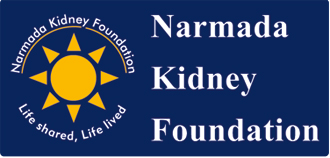Cadaver Organ Donation
When talking of death, it must be realized that death occurs not only when the heart stops beating but also when the brain is dead. So, there are two types:
- Cardiac / Heart Death
- Brain Death
- Irreversible loss of consciousness (unlike coma where consciousness can be regained)
- Loss of brain-stem reflexes
- Absence of respiration
- Flat EEG
- Obvious cause of coma
- Head injury
- Brain Hemorrhage
No. Diagnosis of brain death is made only after 4 physicians have examined the patient.
All the tests required to make diagnosis of brain death have to be repeated 6 hours after the initial tests.
- Supporting a Brain-stem Dead patient on life support system until heart stops would mean waste of manpower, money and ICU bed which could be used to save life of a critically ill person.
- If the family wishes, or if the person had expressed a desire during life (by signing an Organ Donor Card), his/her organs & tissues could be removed to enhance &/or sustain life of many who need them.
Organ Donation: KIDNEYS, PANCREAS, INTESTINE, LIVER, HEART, LUNGS
Tissue Donation: CORNEAS, SKIN, BONE MARROW, HEART VALVES, MIDDLE EAR, TENDON.
The Human Organ Transplant Act – 1994, Legalized brain death and removal of organs for therapeutic/ treatment purposes & Banned organ trade from living unrelated donors.
- There is a lack of awareness even among health professionals. Even when there is an awareness, the health professionals who are directly involved in declaring brain death are uncomfortable with the concept & hesitant to explain the same to the families of the deceased.
- Awareness about brain death & organ donation amongst the lay population is abysmal. With the result, most families are exposed to the idea for the first time when a loved one is declared brain dead and find it difficult to give consent.
- Patients waiting for transplant are often unaware of the option of Cadaver Donor Transplant.
Myth 1: My family will not get to see my body after donation
Fact: families are given the opportunity to spend time with their loved ones after the operation, if they wish. Arrangements for viewing the body after donation are the same as after any death.
Myth 2: Organ Donation will leave my body disfigured
Fact: organs are always removed with the greatest of care and respect for the person. This takes place in a normal operation theater under sterile conditions by a team of specialized doctors. Afterwards, the surgical incision is carefully closed and covered by a dressing in the normal way. The operation is carried out by specialist health care professionals who always ensure that the donor is treated with the utmost respect and dignity.
Myth 3: If I donate my organs it will cause delays to my funeral arrangements
Fact: yes, there is a possibility. However, given the altruistic nature of this donation, families usually accept this and take it as part of the process of donation.
Myth 4: My religion does not support the idea of organ donation
Fact: none of the major religions in India object to organ donation and transplantation. If you have any doubts, you should discuss them with your spiritual or religious adviser.
Myth 5: It is enough if I have a donor card
Fact: no. Just having a donor card is not enough. You need to carry it at all times and also inform your relatives about your wishes so that they honour your wish at the moment of truth.
Myth 6: Once I become an organ donor I can never change my mind
Fact: you always have the option to change your mind. You can withdraw your registration, tear up your organ donor card and let your family know that you have changed your mind.
Myth 7: I am too old to be a donor
Fact: in the case of cornea and some other tissue, age does not matter. For other organs, it is the person’s physical condition, not age, which is the deciding factor. Specialist health care professionals decide in each case which organs and tissue are suitable. Organs and tissue from people in their 70s and 80s are transplanted successfully.
Myth 8: I cannot be a donor because I have an existing medical condition
Fact: having a medical condition does not necessarily prevent a person from becoming an organ or tissue donor. The decision about whether some or all organs or tissue are suitable for transplant is made by a healthcare professional, taking into account your medical history.
